snowflake [none/use name]
- 8 Posts
- 19 Comments

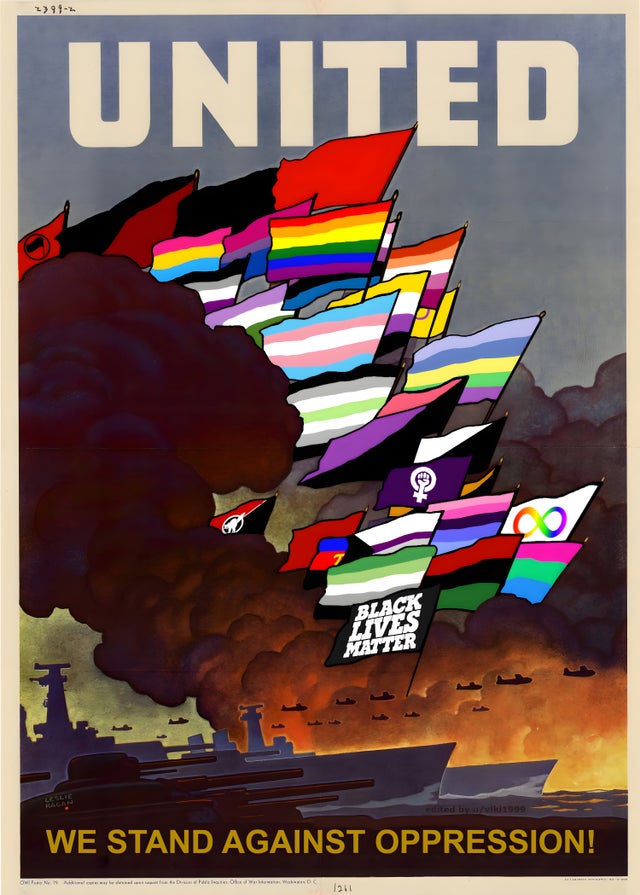 2·12 days ago
2·12 days agoOk, get this:
There’s a big volcanic eruption in 72BC
The volcano throws up a dust cloud that cools the earth, crops fail because of lack of sunlight, states suffer because they can’t levy taxes and conscript soldiers. The 1458 mystery eruption, “put pressure on medieval governments and negatively impacted military efforts”, and the 1257 eruption “may have facilitated the Mongol invasions of the Levant”, “may have altered the outcome of the Toluid Civil War”, and may have led to the Black Death (a 7-year plague). The volcanic winter of 536 led to the Plague of Justinian (a 7-year plague) and to the expansion of Turkic tribes.
What’s going on in 72BC???
- Spartacus’s War was 73–71 BC
- The Third Mithridatic War was 73–63 BC, Rome fights against enemies including the Sarmatians and ends up annexing Judaea
- The Han gain a decisive advantage over the Xiongnu/Huns in 72 BC
What would happen if a volcano blocked out the sun in 72BC???
-
Rome’s crops fail in 72 🡲 Rome’s army is weaker against Spartacus
-
Rome’s crops fail in 72 🡲 Rome’s army is weaker against the Sarmatians 🡲 Rome doesn’t annex Judaea until later 🡲 No Jesus 🡲 No Christianity 🡲 Massive consequences
-
A 7-year plague breaks out like after the 536 and 1257 volcanic winters 🡲 Rome has less manpower and tax revenue 🡲 having less manpower and tax revenue (plus they lost more men in Spartacus’s War), Rome is less successful in the Gallic Wars 14-20 years after the crop failure 🡲 lacking Gaul it is weaker thereafter, Celts are stronger
I’m working on the assumption that people living a more decentralised existence closer to nature (like the Sarmatians and Xiongnu) will cope better with disruptions like crop failures. That’s open to disagreement, but I think is a defensible claim. Plague affects trade-routes a lot; self-sufficient communities do better; so the knockon effect is that we wind up with a more self-sufficient solarpunk mode-of-production overall.
Interesting to think about this for-want-of-a-nail stuff. Driving myself mad with it tbh. The search-space is big and gets bigger the more you think and learn.


 2·24 days ago
2·24 days agoDid that ever threaten to produce capitalist class dynamics?
I’d also love to hear about what conflicts did and do exist, what political theories developed around them, and how they were or weren’t resolved. Do pre-capitalist class dynamics persist or were those dismantled, and if so, how?
I’ve got much better answers to these now. I might do a history post when I get a chance.
Short version is:
-
Gallic Wars were a stalemate. The Romans gains a foothold in Gaul and Britain, but the Celts also remained strong there. A half-strength Roman Empire: and that influences everything subsequent, including that Emperor Constantine doesn’t influence later religion.
-
Yes feudalism develops in Italy, France, Britain. But its barbarian competition is stronger.
-
Now yknow how in the 1400s, Portugal got good ships and contacted West Africa and then America? That happened here too but it was barbarian tribal Portugal.
-
Whoever gets [good ships]+[good guns] in the 1400s wins the planet. That was the Euroid imperialists in the mundane timeline. Here it’s the Celts and Goths.
-
The Celts and Goths, when they contact West Africa and America, don’t do imperialism. Instead they form alliances. Guilds train Americans and Africans in technology (notably including ships and guns).
-
The economic incentive is strengthening/growing the brotherhood. The Goths+Celts from Europe ally with the Berbers+Igbo+Tiv from Africa, and the Tlaxcallan from Mesoamerica. Feudalism in Europe falls before this rainbow coälition.
-
Now Europe has [good ships]+[good guns]+[tribal federalism]. They intervene in India on behalf of the Panchayati Raj tribes. In China, they intervene on behalf of the Miao rebels against centralised statism. In America, they help the Tlaxcallan fight off Aztec imperialism and Aymara fight off Inca imperialism.
-
By about 1600, the world is then won by the economic system described. Because they did they equivalent of what Feudal Europe did.
-

 1·25 days ago
1·25 days agohttps://en.wikipedia.org/wiki/Za_(guilds) – Japan during the Muromachi period (1336-1573)
https://en.wikipedia.org/wiki/Kabunakama – Kabunakama (株仲間) were merchant guilds in Edo period Japan (1603-1868)
https://en.wikipedia.org/wiki/Shreni – India in the early Buddhist period and through the Mauryan period [i.e. 322–184 BC] – Good article
Book: Meera Abraham, Two Medieval Merchant Guilds of South India (on Annas-archive)
Book: Randi Deguilhem (eds), Crafts and Craftsmen of the Middle East: Fashioning the Individual in the Muslim Mediterranean (on Annas-archive)
Kiran Kumar Thaplyal, Guilds in Ancient India: A Study of Guild Organization in Northern India and Sestern Deccan from circa 600 BC to circa 600 AD
Rulers, Townsmen and Bazaars: North Indian Society in the Age of British Expansion 1770-1870

 2·1 month ago
2·1 month agoRegistering members is a special responsibility of the tribe, that will become important when we start looking at confederations. It’s basically a big family with a roll book.
This is like the Somali ‘Abtirsi’ or the Chinese ‘zupu’
-
The Somali concept of ‘Abtirsi’ refers to a systematically organized lineage-based registry or list of paternal ancestors among Somalis. There is an attempt to digitise them: https://web.archive.org/web/20160305090840/http://abtirsi.com/list.php
-
A zupu (simplified: 族谱; traditional: 族譜) is a Chinese kin register or genealogy book. It contains stories of the kin’s origins, male lineage and illustrious members. The updating of one’s zupu (simplified: 修族谱; traditional: 修族譜) is a very important responsibility, usually of the eldest person in the extended family, who then hands the responsibility down to the next generation.
Imagine almost every family in the world had this, and it was your basic legal legal identity: serving the purposes of a passport or social security number in Terra.
(Half the purpose of these threads is to learn interesting little cultural tidbits)
-

 1·1 month ago
1·1 month agoversion 2 live now, take a look☝️

 2·1 month ago
2·1 month agoAbout loose marbles
[moving this here to keep the post about governance, not mutual aid]
What if you don’t have a tribe? Yeah then you’re in trouble, not gonna lie. I never said it was a perfect utopia.
Maybe you were exiled for some a heinous crime like kin-slaying. Maybe you were exiled for a bullshit crime like homosexuality. Maybe your family all died in a shipwreck.
Remember there are two kinds of mutual aid groups: tribes (same blood and culture) and guilds (same profession). See https://hexbear.net/post/596720 .
So now you must join a guild or seek out a tribe that is a good fit and plead for them to adopt you.
If you are strong and useful and a good worker, it’s in their interest to say yes. Or maybe you’re just good-looking. They may of course say no for some reason.
Most commonly, a tribe will say to an applicant something like: “For a twelvemonth and a day, you work 60 hours a week and get rough food and the smallest cabin. If you fulfill this – and you don’t piss anyone off along the way – you then become a full member.”
If you can’t find a mutual aid group because you’re useless or annoying? You could be in real trouble, mate, not gonna lie. Traditional cultures value the Law of Hospitality so you could blow place to place staying 1-3 nights in each depending on their hospitality.

 1·1 month ago
1·1 month agodeleted by creator

 2·1 month ago
2·1 month agodeleted by creator

 2·1 month ago
2·1 month agoLong ago, the world lived in a relative peace. Guided by nature, the people lived off of the land, paying their respects to the gods that assisted them in their daily lives. Then, the Divine arrived. Its light blessed all, allowing for great prosperity in exchange for the Luminae people’s devotion. Declaring the unified Holy Kingdom of Auran, the Divine maintained a more physical presence than the gods of nature that came before it. The Divine could be seen, could be talked to, and could be felt. It was by all means their leader, as well as the arbiter of their salvation, as they saw it.
So this, to me, sounds like an allegory of when centralised monotheism replaced anarchic polytheism, am I right? Free pagan tribes replaced by Abrahamic states. I have similar themes in my worldbuilding. (Maybe I’m imposing my interpretation.)
making sure I don’t end up with a Fire Emblem 7 kind of situation
what does this mean? duckduckgo did not explain it
Should names be changed?
‘Iberia’ to me comes with a lot of baggage: I expect it to have Iberian climate and culture. I have seen worldbuilding claim Terran names successfully, but it’s rare.
Earth magic is a classification applied to spells that use the caster as the source rather than a god or patron.
There is a debate about this in Terran magic. Some magicians like those who practice Goëtia or hang around becomealivinggod.com use spirits all the time rather than their own power. On the other side of the debate you have people like John Michael Greer: “And further: I’ve decided that questions involving the evocation of spirits are also permanently off topic here. The point of occultism is to develop your own capacities, not to try to bully or wheedle other beings into doing things for you. I’ve discussed this in a post on my blog.”
What should the Earth/Dark magic be called?
Middle Pillar magic maybe, to evoke the Middle Pillar exercise. Or siddhi magic to evoke the development of siddhis by self-cultivation. Or cultivation to evoke the cultivation genre in Chinese fiction.

 1·2 months ago
1·2 months agoA couple of quotes from Kropotkin that might help your researches:
-
“Volumes and volumes have been written about these unions which, under the name of guilds, brotherhoods, friendships and druzhestva, minne, artels in Russia, esnaifs in Servia and Turkey, amkari in Georgia”
-
“Only now, when hundreds of guild statutes have been published and studied, and their relationship to the Roman collegiae, and the earlier unions in Greece and in India,[FOOTNOTE: Very interesting facts relative to the universality of guilds will be found in “Two Thousand Years of Guild Life,” by Rev. J. M. Lambert, Hull, 1891. On the Georgian amkari, see S. Eghiazarov, Gorodskiye Tsekhi (“Organization of Transcaucasian Amkari”), in Memoirs of the Caucasian Geographical Society, xiv. 2, 1891.] is known, can we maintain with full confidence that these brotherhoods were but a further development of the same principles which we saw at work in the gens and the village community.”
-

 3·2 months ago
3·2 months agoOk so it’s starting to come together:
1st to 6th centuries – the Barbarian-Roman dialectic
The Gallic Wars were a stalemate (rather than a comprehensive Roman win).
Therefore the barbarian mode of production Kropotkin described remained influential in France and Britain. A paper (DOI: 10.1007/s10814-015-9088-x) talks about how commonage is a pre-Roman influence on Roman and post-Roman Britain. The Visigothic Code (Spain, 642AD) combined Roman and Germanic law, showing that there was a dialectic between those two in that era. Germanic Law means popular assemblies and tribes (i.e. mutual aid groups) and compensatory justice (no cops, no jails). So that Roman-barbarian dialectic existed in Terra, and the Roman aspect led to feudalism. If we tip the Roman-barbarian dialectic to the barbarians, that has knock-on effects.
Because the Roman order doesn’t dominate France and Britain, if Emperor Constantine converts to Christianity, it doesn’t spread the religion. Gallic France, Anglo-Saxon Britain, etc remain pagan. Polytheistic paganism is a more compatible superstructure for a decentralised mode of production; monotheism is more compatible with worship-the-lord and tribute-the-clergy feudal production.
(I haven’t talked about religion much, but the world is pagan rather than Abrahamic in case that wasn’t obvious)
Class conflict in ‘The Middle Ages’
This is when guilds start to emerge (in both Terran history and the alternate history). Let’s look at some classes that exist and their class interests
Good guys for the purposes of our story here:
- Barbarians. People with a vested interest in the barbarian mode-of-production. Huns, “The Teutons, the Celts, the Scandinavians, the Slavonians, and others”, the Russian mir. Their class-interest is to avoid enclosure, avoid anyone coming in imposing tax/tribute/surplus-value-extraction from them. The Chechens, the Turkic tribal confederacy, etc.
- Peasants. Their material interest is to keep production as independent as possible. An example is Terran history of where they succeeded is Friesland. Prevent enclosure.
- Craft guilds. Similar class interests to peasants really (the hammer to their sickle): keep production as independent as possible.
Bad guys –
- Aristocracy. They try to extract surplus value from the peasants and craftsmen. Where the post-Roman and feudal order exists, they exist. Where it does not they do not.
- Clergy. Pretty much the same as the aristocracy. They are much weaker in this world, not worth mentioning. (The Church is antagonistic to clans because they want people depending on the Church: “It has been argued that kinship ties were relatively weak in western Europe, perhaps as the result of deliberate policies by the medieval Catholic Church to weaken them”)
- Merchant guilds. ‘Bad guys’ here because they are what became the bourgeoisie. Must smash. Their class-interest is doing things like enclosure
It makes perfect sense why the proto-bourgeois merchants, aristocracy, clergy have antagonistic interests to the barbarians and peasants.
Fitting the class guilds on to the side of the clans and against the merchant guilds is harder, but maybe I can make it work.
First problem with making the class alliance is that guilds don’t historically side with clans: “guilds did not develop in the British Isles in the early medieval Celtic lands where kinship ties dominated… Tine De Moor argues that weakened family ties were a vital precondition for the spectacular growth of guilds”. Second reason is that craftsmen could be aligned with, not antagonistic with the proto-bourgeoisie, who could give them funding and markets. This is ameliorated if you remove the profit-motive: if the economy is moneyless, based on mutual aid obligations, the craftsman isn’t interested in a bigger market. (The barbarian “blacksmith, who, like the blacksmith of the Indian communities, being a member of the community, is never paid for his work within the community” isn’t interested in ‘making more sales’.)
A series of wars between these two in the Middle Ages ends in the destruction of the merchant and feudal classes. One cool idea is it becomes a war-on-two-fronts for the emerging feudal and bourgeois system; they have Celts to the West (because Julius Cæsar failed to wipe them out), and to the East they have Turks, Huns, Chechens, the Nomadic Empire. A Celt-Khan vice-grip crushes kings.
The half-feudal-half-free people within what was the Holy Roman Empire – groups like the Old Swiss Confederacy, the Frisian Freedom, and peasant republics like the Republic of the Escartons – saw the writing on the wall and sided with the barbarian confederacy. That is in their interest. Basically all the mediæval people Kropotkin liked allied against all the mediæval people Kropotkin did not like.
Europe’s contact with America and Africa in the Age of Sail
Contact is made between the confederated tribes of Europe and the confederated tribes of America. They both have a mode-of-production where they produce locally, rather than extract/exploit. They have no material reason to come into conflict. (In Terra, where they were all about extraction, they did.) You have democratic Europeans (democracies like the folkmoot and þing) meeting democracies like the Haudenosaunee. They start bartering and intermarrying a little. The dominant mode-of-production in Europe isn’t exploitative, so instead of committing genocide Europeans start wearing moccasins because moccasins are comfy as fuck let’s face it.
Similarly, plenty of cool, chill societies in Africa like the Igbo that are based on mutual aid. "It is therefore obvious from the way societies like the Tiv, the central Igbo, and the Dagaaba were organized that they were well aware of the political structure of the centralized systems, but tried to eliminate them as much as possible… such ethnic societies as the Tiv and Igbo of Nigeria, the Nuer of Sudan, the Somali, and the Bedouin Arabs throughout North Africa… In general there were no officeholders; only representatives of groups.". So when Europe and Africa start making more links (in the 1400s), it is European tribal confederacies without an extractive economy, and without a religious imperative to convert/subjugate heathens.
Europe’s contact with India and China
Now the above doesn’t explain why East Asia would follow the same pattern, but a similar thing happened in Terran history: the treaty of Westphalia established nation-states and later the entire globe was nation-states. Similar here but with tribal confederacies.
The Great Divergence
The guilds want to train apprentices in every newly-contacted country to spread their influence. This serves as a technology-transfer mechanism. Industry is not nationalistic: there is an inter-national transatlantic class of engineers: the guild. It is into that world that the steam engine comes. Technology doesn’t give Europe a competitive advantage, because technology gets spread.

 1·2 months ago
1·2 months ago-
George Unwin, The Gilds and Companies of London – https://archive.org/details/cu31924030086692 – on page 2 and 3 he mentions there were guilds in China and India but he doesn’t go into detail
-
There’s a book called Crafts and Craftsmen of the Middle East: Fashioning the Individual in the Muslim Mediterranean that you can find on Annas-archive
-
There’s a book called The Guilds of Ottoman Jerusalem that you can find on Annas-archive
-

 3·2 months ago
3·2 months agoThanks for reading! Hope you enjoyed the post!
What should I ask my contact in the multiverse about next? Preferably don’t focus on the negative.
Next post be about –
- The three moneyless economic mechanisms: mutual aid, contract, and n-sided computerised barter.
- Maritime. The world has many traditional seafaring cultures.
- Some particular region? You choose. (e.g Māori New Zealand, the Arctic cultures, North America
- Solarpunk householding: heating fuel, storage cellars, composting toilets, community gardens
- The formal political structures. The equivalent of the U.N.
- Legal systems and dispute-resolution. Law without lawyers, cops, or prisons. What happens to murderers and thieves? I’ve researched the history/anthropology of this a lot.

 2·3 months ago
2·3 months agothis is clearly half-baked and inefficient
No it’s great! Lava hardens into rock, so if you shape/form/mould it when it is lava, then it solidifies into the shape you want.
There are lots of ways of making things that rely on the thermoplastic effect: you shape it when it’s liquid, then it hardens and you’re done.
If the wizard could bend/conjure lava into any shape, he would be a useful man to have on your construction crew.
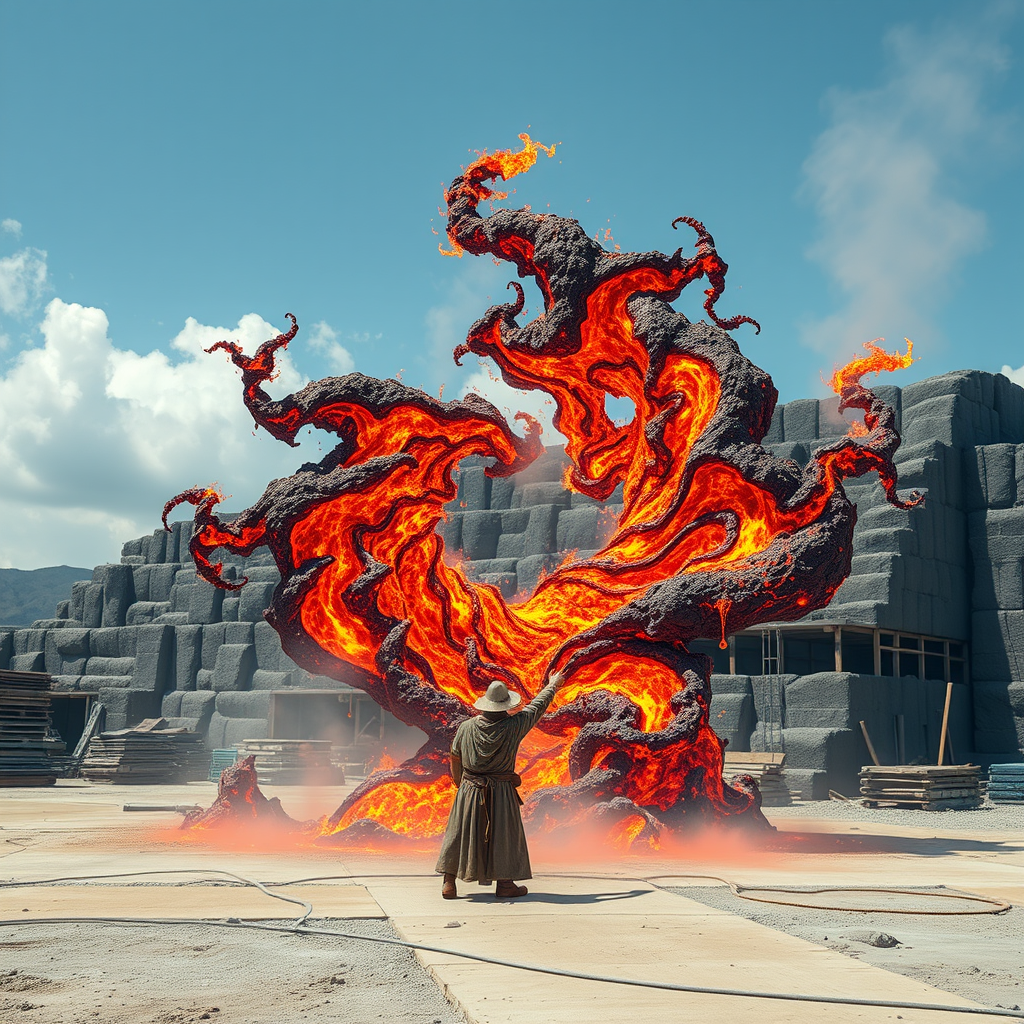
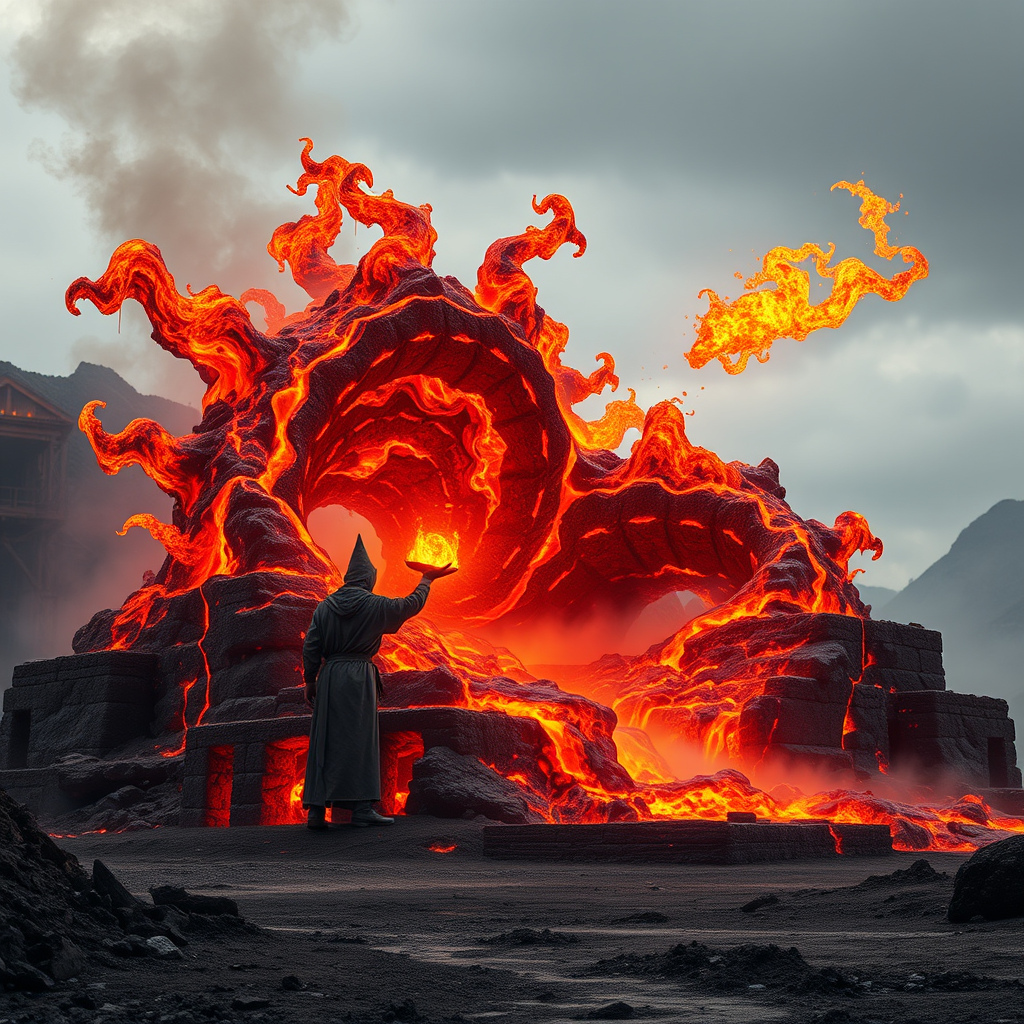
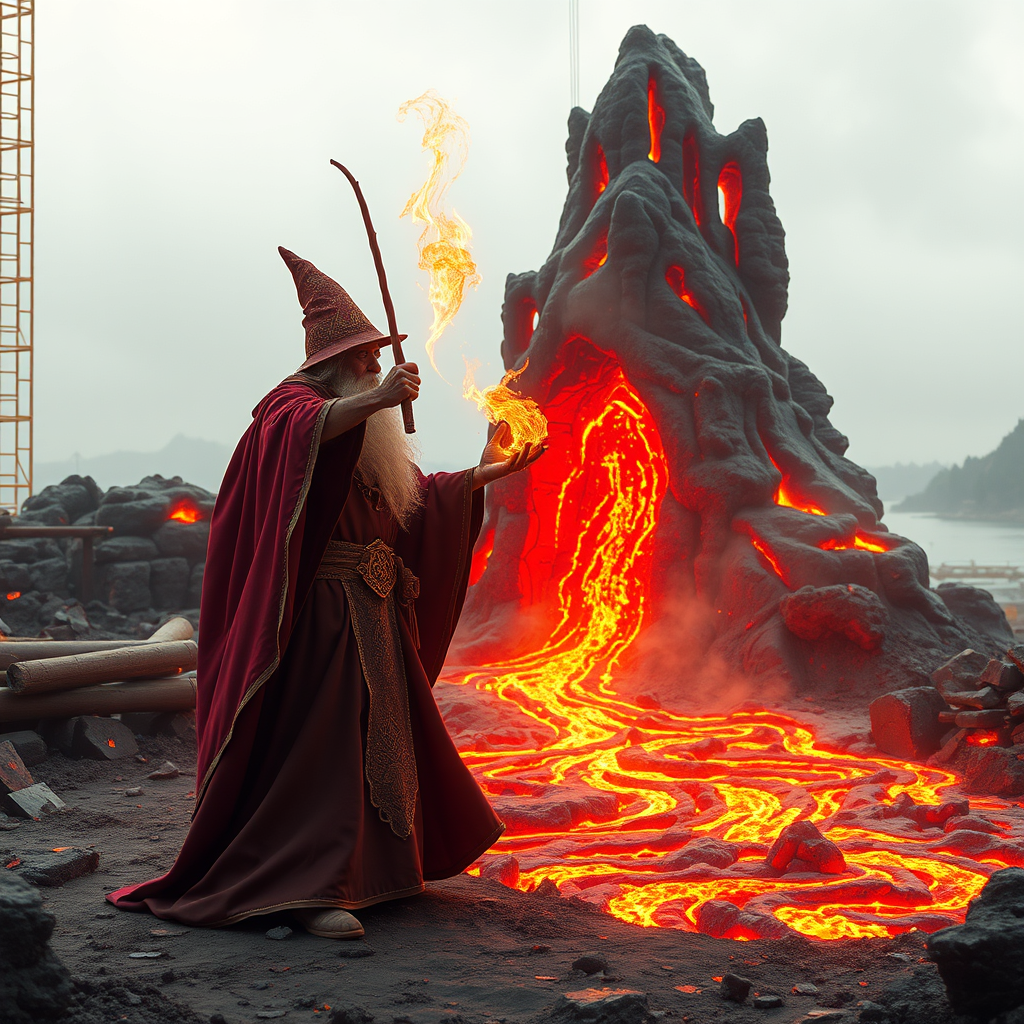
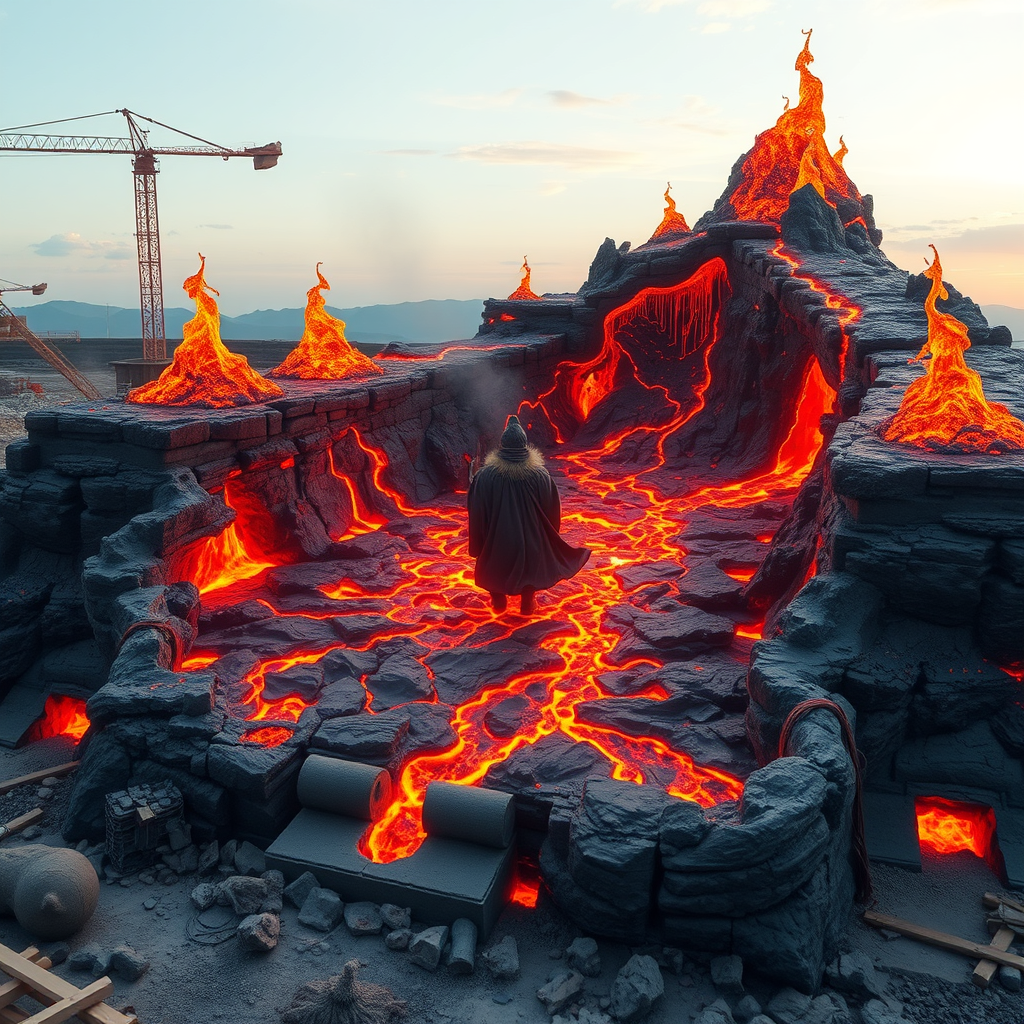


 2·3 months ago
2·3 months agoThis model requires more labour-time – that’s the downside. But labour is saved in other places, like the absence of bullshit jobs… this world just produces less… That also saves labour. Building 10 cars in a Local Motors way might be as labourious as 100 cars in a big Toyota factory.
Oh and then planned obsolescence:
-
Say you’re a capitalist. Your duty is to maximise sales. Is it in your self-interest to make the shirt that wears out in 1 year or 5 years?
-
Say you’re a community tailor. Your duty is make sure everyone in your local tribe has sufficient clothing (use-value). Is it in your self-interest to make the shirt that wears out in 1 year or 5 years?
Things are made more durable. This reduces the amount of labour and production to be done overall.
-

 3·3 months ago
3·3 months agoOh my you’re asking me about all the bad things in a utopia.
Obviously there was a full-scale industrialization of some sort given the technological parity with our timeline.
That word ‘scale’… scale is a big theme. Yes there was full technological development, but the scale is all different:
Terra: Gigantomania, go from a spinning wheel to “a spinning mill containing 10,000 mule spindles”, because the guy profiting from production wants more, bigger.
Solarpunk: Instead of the Industrial Revolution, call it a Tool Revolution. Here the spinning jenny, the spinning mule etc. were invented around the same time as Terra but never went gigantic. People had textiles in 1700 , they just spent long boring hours making them. By 1900 a spinner is, say, 50 times more productive than in 1700. That freed up a lot of time. The goal was not the biggest possible profit; the goal is to provide use-values without excessive burden.
You can rank industries like this:
<-------------------------------------------------------> labour-intensive capital-intensive small scale medium scale huge scale skilled workers deskilled workers local alienatedIn this universe, everything is shifted to the left. But not everything is wayyyy on the left. That would be impossible.
Take the most centralised, most capital-intensive industry of all: microchips. In Terra, one chip fab costs $20 billion to build, and operates with almost lights-out manufacturing.
This hackaday article talks about a guy who managed to make microchips at home. A follow-up article said, “there’s a small group of hackers more interested in making the chips themselves. What it takes the big guys a billion-dollar fab to accomplish, these hobbyists are doing with second-hand equipment, chemicals found in roach killers and rust removers, and a lot of determination to do what no DIYer has done before”.
I’m not saying their chips were good quality, or those guys will replace factories. But it’s a proof-of-concept. Integrated circuits can be made outside of centralised industry, and that means anything can be.
In the solarpunk world, it’s midway. Not five plucky hackers, not an Intel factory either. Instead an organised guild of 5,000 engineers develop manufacturing techniques. They train makers to set up workshops in every city.
Food production is hyperlocal. Chip Fabrication is merely local: maybe a chip fab for each 1,000,000 person confederacy. Manufacturing is right-sized, not so downsized you lose the ability to do high-tech.
This model requires more labour-time – that’s the downside. But labour is saved in other places, like the absence of bullshit jobs.
To take the word ‘scale’ in a different sense: yes this world just produces less steel, less energy, fewer cars, would have a lower GDP if you measured it. That’s solarpunk. That also saves labour. Building 10 cars in a Local Motors way might be as labourious as 100 cars in a big Toyota factory.
Was there ever serious ecological crisis, locally or intentionally?
Locally yes, e.g. the moa was hunted to extinction. Internationally maybe not.
Also, what do you imagine global population is at? I would guess it’s substantially smaller than our timeline, maybe just one or two billion?
It’s smaller than our timeline, but more than two billion. There are cities: it’s not all hunter-gatherers and farmers.
Did that ever threaten to produce capitalist class dynamics?.. I’d also love to hear about what conflicts did and do exist, what political theories developed around them, and how they were or weren’t resolved… Do pre-capitalist class dynamics persist or were those dismantled, and if so, how?
Conflicts: revenge feuds, and raids. Many cultures don’t have war but do have raiding. Raids are part of Indo-European cultures going back 7000 years. They’re smash-n-grabs that don’t escalate to war. As material conditions get better, agricultural yields go up, the incentive for these go down.
Many traditional societies are classless, while some have slavery, some do not. People from no-slavery cultures find others savage and shocking. Not all slavery is morally equivalent; in some cultures it would be forbidden to use corporal punishment on your slave, or to have sex with your slave.
Globally it’s really egalitarian, but there is a little inequality here and there. Just like it’s overall really decentralised, but with a little centralisation.
Right-o. I should have got that.

 3·3 months ago
3·3 months agothank you
Your links are broken, at least for me
In my alternate history world (see my profile), I wanted to let African and American cultures thrive, not be colonised by Europe.
I wanted transatlantic contact to be contact between equals: West Africans + East Americans + far West European barbarians (distinct from the imperial core in Central Europe) all come together and ally… it’s not exactly a lovefest but they see their common interest and create technology-transfer and confederation.
In actual history, one reason America was wiped out was the West lacked immunity to smallpox.
Then I learned a little-known historical tidbit (learned it on Hexbear iirc)… Africans had knowledge of smallpox inoculation! Therefore, if Africans were respected allies that crossed the Atlantic (not slaves), they could bring the Americans smallpox immunity:
So in the alternate history, in the 1490s Europe crosses the Atlantic and rounds Cape Bojador, and a multi-ethnic confederation initiates contact with the Native Americans. It brings the knowledge of smallpox immunity to them, because that’s a technology several Old World Cultures (but not white Europeans) had.
By making Africans equals in transatlantic contact, that simultanæously justifies why Americans weren’t decimated by smallpox.